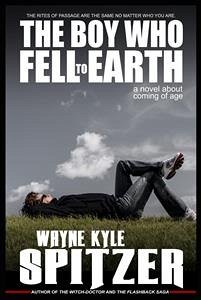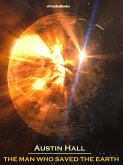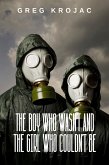It’s the dawn of the 1970s and everything is changing. The war in Vietnam is winding down. So is the Apollo Space Program. The tiny northwestern city of Spokane is about to host a World’s Fair. But the Watergate Hearings and the re-entry of Skylab and the eruption of Mount Saint Helens are coming … as are killer bees and Ronald Reagan. Enter ‘The Kid,’ a panic-prone, hyper-imaginative boy whose life changes drastically when his father brings home an astronaut-white El Camino. As the car’s deep-seated rumbling becomes a catalyst for the Kid’s curiosity, his ailing, over-protective mother finds herself fending off questions she doesn’t want to answer. But her attempt to redirect him on his birthday only arms him with the tool he needs to penetrate deeper—a pair of novelty X-Ray Specs—and as the Camino muscles them through a decade of economic and cultural turmoil, the Kid comes to believe he can see through metal, clothing, skin—to the center of the universe itself, where he imagines something monstrous growing, spreading, reaching across time and space to threaten his very world. Using the iconography of 20th century trash Americana—drive-in monster movies, cancelled TV shows, vintage comic books—Spitzer has written an unconventional memoir which recalls J.M. Coetzee’s Boyhood and Youth. More than a literal character, ‘The Kid’ is both the child and the adult. By eschewing the technique of traditional autobiography, Spitzer creates a spherical narrative in which the past lives on in an eternal present while retrospection penetrates the edges. X-Ray Rider is not so much a memoir as it is a retro prequel to a postmodern life—a cinematized “reboot” of what Stephen King calls the “fogged out landscape” of youth.









